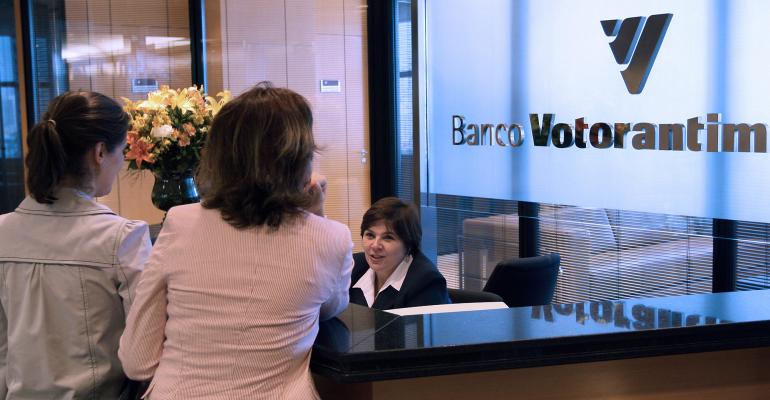(Bloomberg)—Votorantim SA, a conglomerate owned by one of Brazil’s wealthiest families, is looking for opportunities to invest in US real estate for the first time in 2023.
The Sao Paulo-based holding is interested in multifamily housing properties and commercial buildings amid a “dislocation” of prices coming out of the pandemic in different markets, including New York and the West Coast, Chief Executive Officer Joao Schmidt and Chief Financial Officer Sergio Malacrida said in an interview.
“These opportunities are materializing in front of us as we speak,” Schmidt said, adding the group put such deals on hold last year to wait for the best timing. Votorantim opened an office in New York at the end of 2021 to hunt for investments.
The US real estate market would be a new frontier for the group controlled by the Ermirio de Moraes family, which has interests in cement, infrastructure, orange juice, banking, aluminum and power and operates in 19 countries. Votorantim, which is not publicly traded, posted 5.5 billion reais ($1.1 billion) of profit in 2022, down from a record the year before. Revenue was 53 billion reais.
In 2022, Votorantim bought cement assets in Spain and formed a joint venture with Singapore-based investment fund Temasek to deploy some 3.6 billion reais in growth-stage companies under the banner 23S. This year should be about consolidating some of those projects amid an environment of lower growth globally and high interest rates. It expects to invest close to 5.5 billion reais this year, down from about 5.8 billion in 2022.
Higher borrowing costs are pressuring the US commercial real estate market, contributing to a 51% decline in deals in February from a year earlier, according to MSCI Real Assets. Many office properties in particular are struggling as more people work from home and tenants, including technology companies, cut back. Manhattan’s office-vacancy rate hit a record high in the first quarter, according to Jones Lang LaSalle Inc.
“In a market like New York, you have some assets with maximum occupancy and no drop in value and just three blocks away another block that’s completely empty,” Schmidt said.
Sixth Generation
Votorantim, named after a town in Sao Paulo state, was founded in 1918 by Portuguese immigrant Antonio Pereira Ignacio and his son-in-law Jose Ermirio de Moraes eventually took over the group. There are family members on the board of directors and they control a board above Votorantim called Hejoassu. In its sixth generation, the family is made up of 169 people with 53 of them being shareholders, according to a 2021 annual report.
Votorantim calls itself a “permanently capitalized investment holding company, with a long-term investment approach that seeks to deliver superior financial returns with positive social and environmental impacts.”
The group’s debt levels stand at just one times earnings before items and it has 6 billion reais of cash on hand. Any plans for an initial public offering of its banking unit or other businesses however, is probably off the table in 2023, he said, among volatile market conditions.
Votorantim’s aluminum unit Cia Brasileira de Aluminio, or CBA, went public in 2021 and currently has a market value of around 4 billion reais. The bank business, which is a joint venture with state-owned Banco do Brasil SA has junk-rated dollar bonds that yield around 6.25%, according to Trace trading data.
The holding is investment grade, according to the three largest ratings agencies.
“This is a year for our companies to focus a lot on the execution of their strategies despite having plans to access the market at some point. Today I don’t see that window in the short term,” Schmidt said. “It’s a year of low growth globally and Brazil is in the same trend.”
© 2023 Bloomberg L.P.





